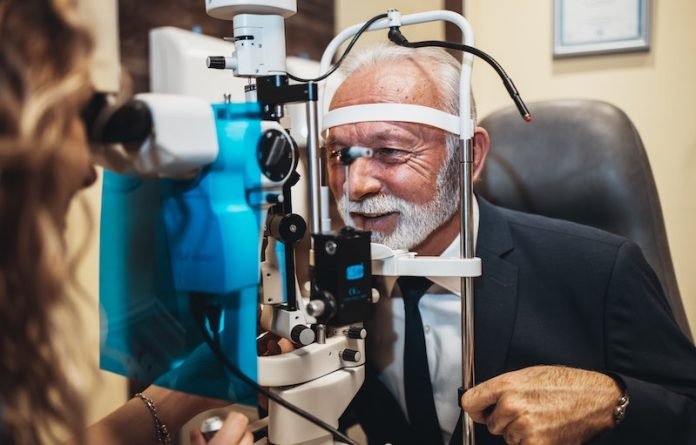
In a study from Kingston University and elsewhere, scientists found artificial intelligence-enabled eye scans could be used to rapidly and accurately predict whether a person is at high risk of heart disease.
The findings could pave the way for a heart screening to be done more quickly and simply by using cameras, without the need for blood tests or blood pressure measurements.
Circulatory diseases, including cardiovascular disease, coronary heart disease, heart failure, and stroke, are major causes of ill health and death worldwide.
While several risk frameworks exist, these aren’t always able to accurately identify those who will go on to develop or die of circulatory diseases.
In the study, the team developed artificial intelligence (AI) algorithms that could reliably measure features on the retinal image, such as the width of blood vessels and how curved they were.
They showed that this AI-enabled imaging could specify the risk of heart disease and stroke and act as an alternative predictive biomarker to traditional risk scores for vascular health.
The team says this type of screening would just need a retinal image and a few details, such as age, whether the patient smokes or not, and some questions relating to their medical history.
The researchers developed a fully automated AI-enabled algorithm, called QUARTZ, to assess the potential of retinal vasculature imaging alongside known risk factors to predict vascular health and death.
The algorithm can assess a single retinal image in less than a minute.
In the study, retinal images from 88,052 UK Biobank participants aged 40-69 were scanned using the algorithm, looking specifically at the width, vessel area, and degree of curvature of the vessels to develop prediction models for stroke, heart attack, and death from circulatory disease.
These models were then applied to the retinal images of 7,411 participants, aged 48-92, of the European Prospective Investigation into Cancer (EPIC)-Norfolk study.
The performance of QUARTZ was compared with the widely used Framingham Risk Scores framework.
The health of participants was tracked for an average of seven to nine years, with a non-invasive risk score based on age, sex, smoking, medical history, and retinal vasculature found to have performed as well as the Framingham framework.
If you care about heart health, please read studies about how to reverse heart failure with diet, and this common painkiller may increase the risks of heart disease and stroke.
For more information about heart health, please see recent studies about the amazing benefits of beets for diabetes, blood pressure, and nerves, and results showing Vitamin C may help treat heart rhythm problems.
The study was conducted by Sarah Barman et al and published in the British Journal of Ophthalmology.
Copyright © 2022 Knowridge Science Report. All rights reserved.



